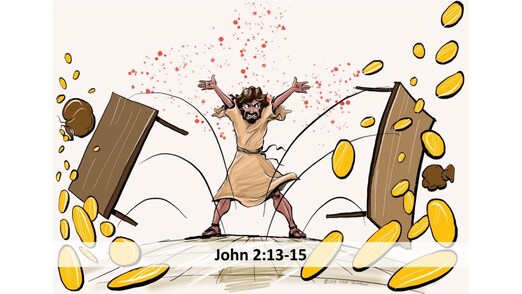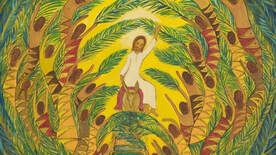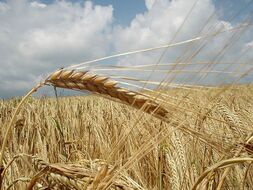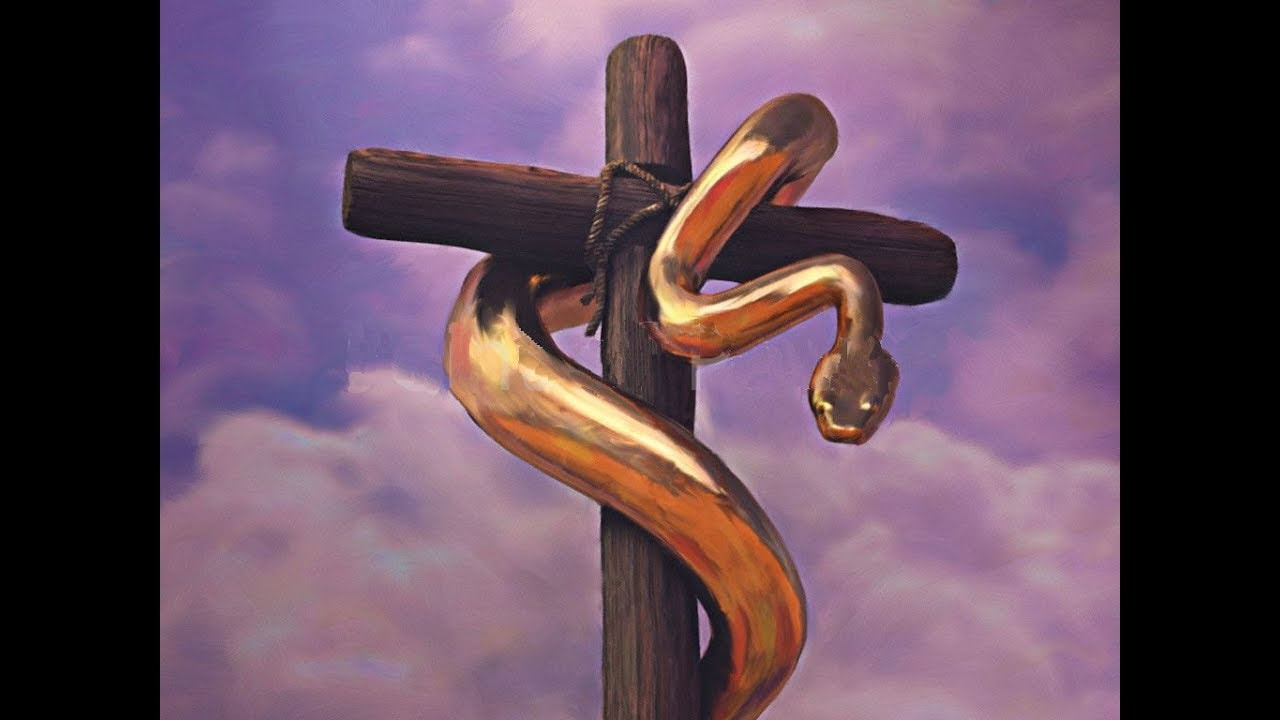Reflection: "Hosannas Before the Storm"Imagine it’s Cracker Night (when it was still legal, a number of years ago).
You take a cracker, a nice big one, a bunger, get your match, light the cracker and throw it away into a clear space. You wince your body, cover your ears, and wait, but….…nothing happens. So, you walk over to it, kick it with your boot, look at it a little more carefully and sense that it’s gone out. You pick it up, break it in half and now you know for sure that it’s a dud. Well, I think that might have been a bit like how Palm Sunday went, all those years ago, in Jerusalem. Jesus came into town riding on a young donkey, a colt - and the expectations of a big bang were high. But it all ended up being a dud, just a plain fizzer. Let me explain. On this day, when Jesus came riding into town there were heaps of people in Jerusalem. That’s because, it was a requirement for all Jewish men to make a pilgrimage to the Passover festival in Jerusalem, at some time in their life. We know now that Jesus had a higher motive than this for his visit. As Jesus slowly entered that city, people were jamming the streets and they were yelling, “It’s the Messiah. Hosanna, it’s the Messiah. The Messiah is coming, just as it’s been promised in the scriptures.” They’d heard about him and were excited about what he was going to do to help them out of their predicament – the occupation of their lands by the Romans. They were expecting a warrior king - but that’s not the message that Jesus is planning to bring to them. Soon their voices became one and they chanted together, “Hosanna to the Son of David.” They ripped the clothes off their backs and tossed their cloaks on the ground in front of Jesus, grabbed palm branches and were waving them with gusto. As Jesus approached the centre square of the city, the crowd was intense, shoulder-to-shoulder. Jesus got down off the donkey, and the crowd were wondering what he was going to say and do next. Wondering if all the angels from heaven were going to come down right now. But Jesus simply got off his donkey, walked into the temple where he had taught so many times before. They probably said to one another: "Maybe the temple will fall apart; maybe it'll explode. Who knows what will happen next?" As Jesus went into the temple; all eyes were watching; all eyes were on him. He looked around, then came back out of the temple and did……… nothing. He looked around, got up onto his donkey and said to his twelve disciples, “Let’s go to Bethany.” Then he left. What a fizzer. Here they were, expecting the promised Messiah, the King who was going to save them, but nothing happened. The crowd slowly began to leave and then got angrier and angrier and angrier. The next day, it started as a whisper, “Crucify him” and by the eve of the Passover, Good Friday, they were all shouting at the top of their lungs in unison: “Crucify him, crucify him, crucify him. Crucify that common, ordinary carpenter. He’s no Messiah. He’s a dud.” Well, that may have been how it was on that first Palm Sunday. What happened, they would have wondered? Why did it turn out to be such a non-event, such a dud? It seems like the people of God misunderstood the promises of God. It happened throughout history and is still happening today. In the early days of the relationship with God and his people, as we read in the Old Testament, God promised the people that he would give them the Promised Land. God promised to give his people the land of Israel. A good land. A beautiful land. A lush land. But what did the Promised Land turn out to be? It was filled with all sorts of other people who were happily settled in the land, so it took 200 years to conquer it. 200 years of fighting to make the promised land their own. Was that part of God’s promise? The Jews had heard only the part of the promise that they wanted to hear. The part they liked was where God said: “I’ll give you a land filled with milk & honey.” The Jews didn’t hear, or want to hear, the hard part where it would take 200 years to conquer it. We still twist the promises of God and only hear what we want to hear, omitting the hard parts of the promise. Everywhere in the Old Testament there are promises of the coming Messiah. The Messiah was going to be a wonderful counsellor, mighty God, an everlasting father, and the prince of peace. This new Messiah was going to bring justice and peace to the land. Then, along comes Jesus, riding into town on a donkey, just like the prophets had foretold. But what did the promise turn out to be? Did this person turn out to be a wonderful counsellor, mighty God, everlasting father and prince of peace? Not in their eyes, because they weren’t looking for such a person - as I said earlier, they wanted a warrior King. This Messiah turned out to be a carpenter who rode on a jackass and got himself killed by Friday afternoon, so it didn’t work out the way they wanted, at all. He didn’t meet their expectations. Once again, the Jews picked only the best parts of the promise, the best parts of the passage, the best parts of the flower, the best parts of the Bible, omitting all the other parts of the promise. All throughout history, we’ve taken the promises of God and twisted them to meet our own ends; we twist the promises of God to meet our own happiness; we twist the promises of God to meet our own expectations. So, what is it that we want? We want to avoid anything that has to do with suffering, death, struggle or sacrifice.No suffering. No death. No struggle. No sacrifice. We omit all those parts of the promise. To use a floral analogy, we want the rose blossom, but we don’t want the thorny stem. We want the top glorious red, pink. yellow blossoms, but not the thorns. In other words, we always want Palm Sunday but not ‘Passion Sunday’ – the Sunday leading to the passion of Christ on the cross. And that’s what happened on that first Palm Sunday. God promised Passion Sunday, but the people wanted the drama of Palm Sunday. Anything that had to do with executions, crosses, suffering and death - the people of God didn’t want to hear about. It seems to me that the fulfilment of God’s promises always involves suffering and struggle, whether it’s a promise about peace, or the abundant life, or freedom. All these great promises from God involve struggle, suffering, discipline, death, and injustice. There are always big thorns on that rose bush, and we, the people of God, intuitively want to avoid that. We want to delete that part of the promise.God has promised us a new kingdom, so let’s not distort what he’s offering by just looking on the rosy side. We also need to take the hard parts with the good, but make no mistake, this new kingdom will be beautiful. It surely was an extremely testing and trying time for Jesus. It was the culmination of his ministry on earth and the basis for the faith of those of us who are called Christians, his disciples. Let’s thank God for his generosity to us, by working hard to build his kingdom here on earth. So, we eagerly await the passion of Jesus as it unfolds before us in the Holy Week to come. He endured all of this for us, so that our sins are forgiven and we can join him after we pass on from this mortal life. Blessings on this commencement of Holy Week……..Pastor Rick
1 Comment
Reflection: "Life and Death"Today I’m going to let you in on the secret to life.
You probably already know what I’m going to tell you, though you may not have thought of it as the secret to life. It’s something you’ve probably seen and experienced over and over. It’s one of those secrets hidden in plain sight. It’s also one of those secrets that can trouble the soul, so we often turn away from it, or close our eyes to it.Jesus said: “Unless a grain of wheat falls into the earth and dies, it remains just a single grain; but if it dies, it bears much fruit”. So, there you have it - now you know the secret to life. It’s the pattern of loss and renewal that runs throughout our lives and our world. Even if you’ve never thought of it this way, you may have lived and experienced it, sometimes by choice and other times by chance - either way, it’s there. Look at the way this pattern is present in your life. Have you ever fallen in love and committed your life to another? If so, you had to let parts of your old life go and something of your single life died so that you could be with that other person. How about parenting? If you’re a parent, you know that there are sacrifices of yourself and your life to be made in order for the new life of your child to emerge and grow. We give up parts of ourselves for the other and we’re continually letting go of the child so they can grow up. Have you ever been the carer of another? If so, you could name the parts of your life that died so that another might live with dignity, compassion, and love. This same pattern is in nature. We can see it in the changing of the seasons, falling leaves and new blooms, and the setting and rising of the sun. The secret’s out. It’s a pattern of loss and renewal, dying and rising, letting go and getting back, leaving and return. It’s at the core of our baptism and it’s what we declare when we celebrate communion: “Christ has died, Christ is risen, Christ will come again.” What in your life do you need to let go of today? What might you need to leave behind? What needs to die so that something new can arise? I don’t think it’s a coincidence that today’s gospel story is set in the context of the Passover feast. The Passover is the celebration of the Israelites’ liberation from bondage in Egypt. It’s about freedom and new life. It’s about letting go, leaving behind, and moving into a new life. There’s something about this pattern that is the lens through which we see Jesus. Some Greeks come to Philip and say, “Sir, we wish to see Jesus.” Philip tells Andrew about the Greeks and their request. Philip and Andrew tell Jesus and Jesus says to them, “Unless a grain of wheat falls into the earth and dies, it remains just a single grain; but if it dies, it bears much fruit.” That’s his response to those who want to see him; to the Greeks, to you, to me. And you’ve got to know that his reference to dying is about more than just our physical death. We die a thousand deaths throughout our lifetime, through the loss of a loved one, a relationship, loss of health, missed opportunities, or dreams. At other times we choose our losses and deaths. We give up parts of ourselves for others. And sometimes there are things we need to let go of - like fear, anger, resentment, regret, disappointment, guilt, the need to be right. These things we cling to that deny us the fullness of the life we crave, and that God offers to us. For us, seeing Jesus isn’t supposed to be a spectator sport. It’s a way to be followed, a truth to be embodied, a life to be lived. It’s being a grain of wheat that falls into the ground and dies so that it might bear much fruit. That’s where we see him. It’s the letting go, the emptying, the leaving behind, and the dying that makes space for new life to arise. Has there ever been a time in your life when you look back and say, “I never want to go through that again, but I wouldn’t trade the experience for anything.” What happened at that time for you? As difficult or painful as that experience was, it probably bore much fruit. You were probably changed, and your life was renewed. It was one of those times when you were the grain of wheat that fell into the earth and died, and I’ll bet it was one of those times when you knew that you had seen Jesus. When you experienced the holy, when you were absolutely convinced that God was present and working in your life. Letting go doesn’t mean rejection or walking away - and it doesn’t mean choosing absence over presence. Instead, letting go is what allows us to be more authentically present to ourselves and others. It makes room for new life and new ways of being present to arise. Our letting go gives God something to work with. Why then would we continue to cling to the old ways, to live as an isolated, self-enclosed, single grain of wheat? The soul-troubling secret to life is that unless our grain of wheat falls into the earth and dies, we won’t bear fruit. I wonder what the grain of wheat is in your life today - the one that needs to fall into the earth and die? What are the things that if you lost them, you’re sure you’d just want to die? Maybe those are the very places waiting to bear much fruit in your life. Maybe that’s where you’ll see Jesus. However, remember that growth can be a slow process and the fruit of new life takes time - usually longer than we want it to. Yet, even when unseen, unbelieved, or unrecognized, the power and life of God are present and at work in the depths of our life, in the dark and hidden places and that’s the answer to the mystery of life. I pray that you can sprout into a productive new life in Christ. "We know that God goes with us into every part of our lives.Our calling is to live fully for the Kingdom, so go out into the world in peace to love and serve him forever. Amen" Pastor Rick Reflection: "New Lives in Christ"Even in a time when many people don't know much about the Bible, there's a verse that most of them know by heart.
Sometimes we don't even have to recite it; just the bible reference will do: "John 3:16" You may have even seen it held up on painted signs at sporting matches. It suggests the heart of the Christian message, summarizing what God did in, and through, Jesus. "For God so loved the world that he gave his only Son, so that everyone who believes in him may not perish but may have eternal life." Or in short form: "God so loved the world." That pretty much says it all - doesn't it? It's the good news in a nutshell. On this Fourth Sunday in the season of Lent, let’s go deeper into this familiar passage from John. To do that, we have to go on a journey into the distant past - all the way back to the Old Testament book of Numbers. The people are in the Sinai desert, following Moses on a circuitous trek, out of slavery, toward the land that God has promised them and they’re following Moses half-heartedly because, after such a long journey, they’ve begun to doubt their leaders and even wonder if there is a promised land at all. This rag-tag band of pilgrims have begun to murmur - that is, they’re complaining about the hard life of the desert. The strange, God-given diet of manna and quail, and the uncertainty of their serpentine route, aren’t pleasing them.And it was serpentine in more ways than one! In the 21st chapter of Numbers, somewhere out in this seemingly God-forsaken desert, God sends a plague of poisonous snakes. The snakes were plentiful, they were poisonous, and people began to die. The people went to Moses, suspecting that the snakes were a form of divine retribution for all their complaining. They asked Moses to intercede for them with God - and he obliged. God tells Moses to fashion a serpent of bronze and put it on a pole. Then, if any of the people are bitten by a poisonous snake, they should be told to gaze at the bronze serpent so that they will be healed. Interesting concept, isn't it? Look at a snake and be cured of snakebite. But God’s suggestion worked and those who had been bitten were healed after gazing at the bronze serpent. End of story? Not really. Turning to the book of Second Kings, Chapter 18, we read that for 500 years after Moses, we haven't heard another word about this bronze serpent. By now the people have settled in the Promised Land and they decided to have kings, as other nations did. Many of those kings were disappointing and corrupt, but one king came along who was different. His name was Hezekiah and he cleaned things up in the land by removing the high places, breaking down the pillars, and cutting down the sacred poles. In effect, what he did was destroy the pagan worship places, which had cropped up around the land. Then we read that he: “broke in pieces the bronze serpent that Moses had made, for until those days the people of Israel had made offerings to it." Do you see what had happened? Five hundred years after Moses had made the bronze serpent as a means of healing the people, they still had it - and it, too had become an idol. That is, what had been a means to an end, had become an end in itself! Instead of pointing toward the God who had ordered it made, it now pointed toward itself - and the people worshiped the serpent, instead of the God to whom it was supposed to point. I wonder what the people's reaction was when King Hezekiah smashed that five-hundred-year-old bronze serpent - after all, it had been made by Moses himself, a precious antique, a part of the nation's history. Sometimes, we Christians begin to worship what is old, but is no longer precious. We have our traditions, and we rebel against change. These two Old Testament passages about the bronze serpent illustrate a necessary point. What had been helpful and healing in one era had become an idol in another. I wonder: how many things in the life of our churches used to be helpful and healing but have outlived their usefulness? How many old traditions have we turned into idols? There is much discussion these days about the church's failure to attract and engage young adults. The census shows that the most rapid growth in religious following is among the "Nones" - that is, those people who answer the question of religious affiliation as: "None." I can't help but wonder if those who try our churches find us gathered around various prized bronze serpents that we should have smashed long ago. Now that I'm in my late-sixties and have been involved in churches for most of that time, I must confess that I’ve been exposed to many such serpents. People like me must challenge ourselves, asking which among these objects are no longer helpful or healing. What means to an end have we turned into ends in themselves? Good King Hezekiah smashed the bronze serpent, in spite of what I'm sure were numerous complaints from the Hebrew Historical Architectural Review Board. And in so doing, he proved to be an example of the spirit of reform. But that wasn’t the end of it. The bronze serpent has come back in the New Testament, in today’s gospel reading! That old bronze serpent - made by Moses and smashed by King Hezekiah - has come back at the end of this serpentine story. Jesus is not saying that a serpent on a pole can heal you; he’s saying that, just as the serpent was lifted up in the wilderness to heal, so he, Jesus Christ, the Son of Man, must be lifted up on a cross to be able to save us. Just as he told Nicodemus, we must be born from above. We must discover the incredible world of the Spirit. Do you see where this serpentine, meandering story of the snake has taken us? From the desert wanderings of Moses' rag-tag band, to the hill of Calvary. And there, we hear the call to lift up our eyes and see the one who saves us and gives us abundant life. Now the snake of Moses has led us to that favourite verse, that "gospel in a nutshell": "For God so loved the world that he gave his only Son, so that everyone who believes in him may not perish but may have eternal life." And it is followed by this great, final word in verse 17: "Indeed, God did not send the Son into the world to condemn the world, but in order that the world might be saved through him." In Jesus we find new life - so lift up your eyes, lift up your hearts - the story has come down to this: Because God loves us, we can have new lives in Christ. Halleluiah……………Pastor Rick Reflection: "Clearing Out" Our story this week (from the Gospel of John) is not simply a story about Jesus getting angry.
I occasionally get angry and I’m sure that you do at times. It’s a human trait to get angry. But that misses the point. There’s more to this story than just that. And I don’t think it’s about the animals, or the moneychangers, being in the temple, either. Jesus must have known they were there, because he grew up as a faithful Jew, going regularly to the temple. I think Jesus went to the temple that day for one purpose; to throw out and overturn “business as usual”. Have you ever pushed your “auto-pilot” button and let your life become mechanical, just following a routine - “business as usual”? Sometimes, we just go through the motions, showing up, but not really being there. But that’s just the symptom - not really the problem, in the same way that the animals and moneychangers in the temple are not the problem, but the symptom of something deeper going on. Perhaps we can interpret what’s happening in the temple as what’s going on in our human hearts. There are times when we need the tables of our life overturned, and to clear out the rubbish. So, what gives rise to our “business as usual” attitude? Sometimes it’s because of fear – maybe of what’s happening in our life, or the uncertainty of the future, and we want some sort of security and predictability – so we just keep on doing the same old routine, hoping that nothing will change. Business as usual is predictable and steady, but it only creates the illusion of security. Business as usual can be a symptom of our grief and sorrow – such as when we’ve lost something, or someone. We can’t get back the life we want, so we cling to business as usual because it’s familiar and we want some stability. This can keep us functioning for a while, but we need to work through the issues and heal and find a ‘new’ life without whatever, or whoever, we’ve lost. At other times we’re so busy and worn out making a living, that life turns into one task after another, one appointment after another, a never ending to do list – and, then, it’s back to business as usual again. There are thousands of reasons and ways in which we fall into business as usual. Business as usual is born of forgetfulness; when we forget that we are actually the temple of God’s presence. We forget that creation is God’s residence and, whatever direction we turn, the face of God is gazing upon us. As soon as we forget those things about ourselves, each other, or the world, life returns to business as usual. Maybe that’s what happened in the temple in our story. They didn’t see themselves, or one another, as the true temple of God. It was all about the human built temple, the animals, and the coins for their sacrifices. They’d forgotten that God was more interested in them, than in their festivals, and that God wanted them, more than their offerings. When we forget that we are the temple of God, life can easily become a series of transactions. Relationships and intimacy are lost, priorities get rearranged and making a living replaces living a life. Life becomes a marketplace rather than a place for meeting the holy in ourselves and one another. That’s exactly what Jesus is overturning and driving out of the temple. Throughout the New Testament bible stories Jesus was interrupting, disrupting, overturning and clearing out business as usual, because it destroys our ability see, understand and participate in the holy that is already present in and among us. The Word (Jesus) became flesh so that we humans might understand that God is actually with us (“The Christ in you and the Christ in me”) and that we are the temple in which God lives. Jesus continues to overturn and throw out business as usual because the truth is, there are still Samaritan women waiting at the well in our world today, looking to find the “living water”. There are still lame people, grounded by business as usual - unable to get up and walk. Empty and hungry people are still a reality in our world and there are dead-feeling people, waiting to be made alive. Maybe for you today this isn’t about other people - maybe you are the woman at the well. Maybe you know what it’s like to be grounded and paralysed. Maybe you are empty and hungry today. Maybe you need to be called to life. Maybe business as usual needs to be interrupted in your life – cleared out. This story about the Jewish temple can also speak of the temple which is our body. Regardless of who we are, what we’ve done or left undone, or how we see or judge our life, we are the temple of God, and Jesus is there with us, pointing out which parts of our lives also need clearing out. So, I ask you, what parts in the temple of your life need changing today? What tables in your life need to be overturned and what animals driven out? I’m not asking about what needs to happen so that you can become holy or become the temple, but just so you can see that you already are the temple, and you need to claim what is already yours. Jesus doesn’t want to make us into something we’re not, instead, he calls us back to who we’ve always been – Children of God, living in his great creation. During this period of Lent, we need to examine ourselves more closely – looking at the “everyday” things we’re doing. If we think that they are things that are not pleasing to God we need to stop, rethink, turn around and take a new path – in other words “repent”. That’s what Lent is all about – clearing out the clutter and getting back to God. We know that Jesus died for us at Easter and washed away our sins. Now we need to stop doing those sins over and over and, instead, ask for God’s forgiveness, trying our best to take a new path – one that leads to righteousness in God’s Kingdom here on earth. I pray that you can find that path, through prayer and perseverance. Stay strong……………Pastor Rick |
Pastor
|
LANE COVE
|
Worship Service:9:30am Sunday
© Lane Cove Uniting Church | 2020
|





 RSS Feed
RSS Feed